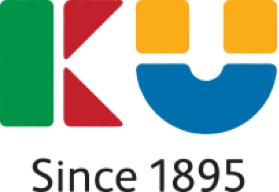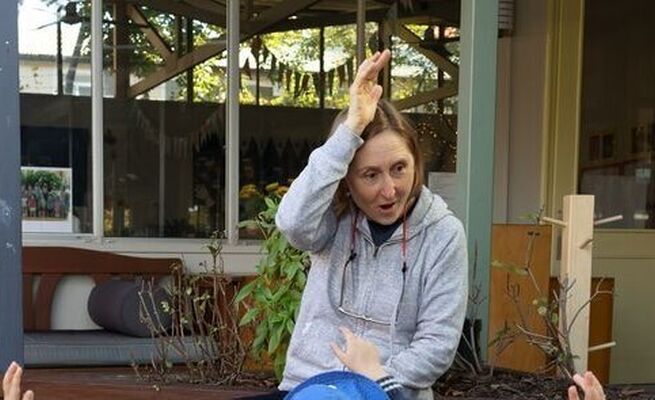Inclusive Group Times
Embedding a neuro-affirming, inclusive approach to group times
Group time experiences range from small gatherings to whole group activities and can be spontaneous, in response to children's interests as they emerge through their play and conversations, or planned in advance. Group times may be child-led or adult initiated. Under the principal of 'Equity, Inclusion and High expectations' in the Early Years Learning Framework V.2 (AGDE 2022) educators are prompted to consider the rights of all children and to provide environments and programs that are inclusive and promote participation, meeting and supporting children's individual needs and ways of being. Through identifying barriers to inclusion, engaging in reflection and applying an inclusive, neuro-affirming lens, educators can make intentional decisions around how group times can be implemented to support children of all abilities.
Small groups
Small groups offer opportunities for educators to provide greater focus for individual children, while supporting shared dialogue, relationship building and interest exploration. The Early Years Learning Framework V.2 (AGDE 2022) encourages provision of environments that prompt small group interaction and play (p.36). Often, small group experiences emerge naturally throughout the day, as educators seize 'teachable moments' and extend on children's play exploration and interactions with peers.
The small group context offers a range of benefits including:
- Strengthening peer interactions and relationship building
- Nurturing communication and language development
- Calm, collaborative learning with less sensory load
- Increased opportunities to express ideas, listen and respond to others
- Developing children's confidence to contribute within a larger group context
Large and whole groups
Large and whole group experiences can offer children a sense of belonging within their preschool community. They can be useful for sharing information about the day or reflecting on shared experiences. Continual critical reflection is vital for successful implementation of groups with large numbers as there are greater demands on educators' attention, greater sensory load on all participants and the need to balance a wider range of individual needs while maintaining connection with the group as a whole. It is valuable for the team to reflect on philosophies, theories and approaches that underpin practice and how these impact on the provision of large group experiences. It is important to consider all children's voices and how each child may be advantaged or disadvantaged.
Considerations for all group times
When planning for or engaging spontaneously in group experiences with children, of any size, there are key concepts to consider. These include:
- Children's agency, choice and autonomy (How are children encouraged to use their voices and are their voices heard? Are there a variety of ways for children to engage? Is a child's right to join in or decline respected? Can they safely take a break if needed or leave when they are no longer able to attend?)
- Environment and physical space (Are provisions, such as flexible seating options and fidget toys, available to support individual participation needs? Is the space appropriate for the experience provided?)
- Structure, size and timing of group experiences (Is there a balance of movement and passive participation? Is the length of time suitable for the stage of children's development?)
- Educator roles and how the team work together to support and optimise group time success (Where are educators positioned? How are they supporting engagement?)
- Content, methods and resources (Does content reflect children's needs and interests? Are resources engaging? Are experiences fun and playful?)
Transitions
Planning for effective transitions to and from group experiences is pivotal in promoting children's engagement in the group offering. Transitions also impact children's capacity to engage with the subsequent element of the program for example choosing a play activity or completing a routine task such as handwashing. Calmly executed transitions with minimal waiting, noise and movement, help children maintain emotional regulation.
It is helpful to think about:
- How individual children manage transitions
- What elements may be challenging for children and what provisions may support them
- How to reduce sensory demands and create calm, unhurried movement into and out of the group context
A note regarding school readiness
While group times are a long-standing feature of early childhood education, as with all practices, it can be helpful for educators to reflect on the purpose or intention of group times.
Group times are often viewed through the lens of preparing children for the more formal group expectations of school. This may lead to a focus on the element of 'becoming', to the exclusion of honouring children's current stage of 'being'. As educators we have a responsibility to maintain the key qualities of early childhood education; joy, playfulness and curiosity, and to ensure offerings align with how individual children learn best, meeting their current needs and resisting pressure to mirror the more formal school context. 'School readiness' is a broad concept and encompasses the building of a range of skills, particularly in the socio-emotional and self-help domains. Play-based early childhood programs provide a plethora of opportunities for children to grow in the areas they need to thrive in a school setting.
Resources
The following resources offer a deeper exploration of group time considerations, and questions to prompt further thinking and conversation. Your Preschool Inclusion Consultant can assist you with using these resources to support your team's critical reflection around group time planning and implementation in your preschool.
National Quality Standard links for the content on this page
QA1 Educational Program and Practice
- 1.1.3 Program Learning opportunities
- 1.3.2 Critical Reflection
QA5 Relationships with Children
- 5.1.2 Dignity and Rights of the child

